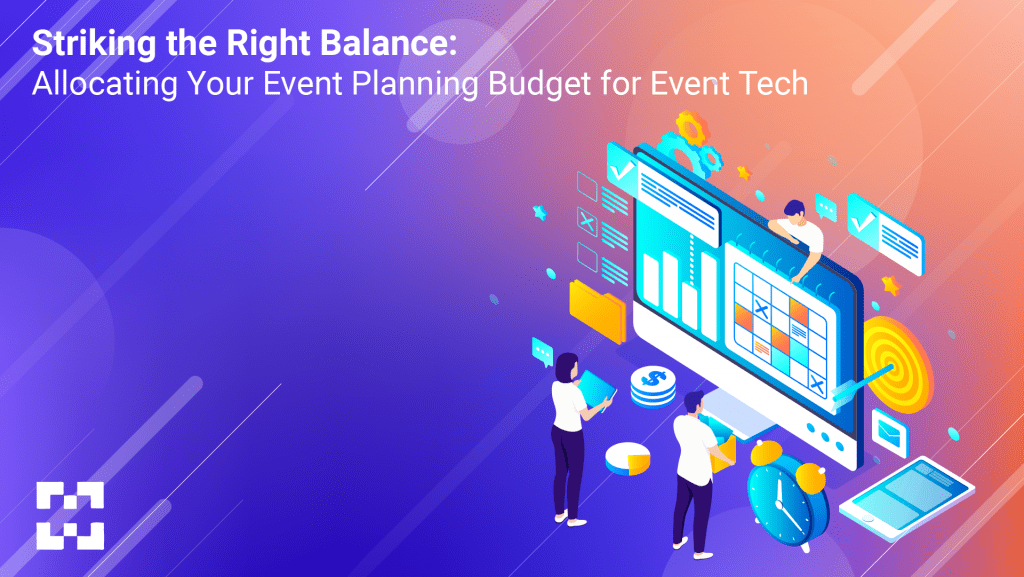
Introduction:
Event planning in the modern era has undergone a significant transformation with the integration of technology. As events continue to evolve, the question arises: How much of your event planning budget should be allocated to event tech? Striking the right balance is crucial for creating a seamless and engaging experience for attendees. In this blog, we’ll explore the considerations and factors that should guide your decision-making process when allocating funds for event technology.
The Role of Event Tech in Today’s Events:
Before delving into budget considerations, it’s essential to understand the pivotal role event tech plays in today’s events. Event technology encompasses a wide range of tools and solutions, including registration platforms, mobile apps, virtual event platforms, live streaming, audience engagement tools, and more. These technologies enhance various aspects of event planning, from registration and ticketing to on-site experiences and virtual engagement.
Key Considerations for Allocating Event Tech Budget:
Event Objectives and Goals:
Define your event objectives and goals to determine the role technology will play in achieving them.
For virtual or hybrid events, robust virtual event platforms are essential, while in-person events may focus on attendee engagement tools and event management software.
Event Type and Scale:
The nature and scale of your event influence the type and extent of event tech required.
Large conferences or trade shows may need comprehensive solutions, including registration systems, mobile apps, and live streaming capabilities.
Audience Engagement Requirements:
Consider the level of audience engagement needed for your event.
Features like live polling, Q&A sessions, and virtual networking tools enhance participant interaction.
Integration with Existing Systems:
Assess whether the chosen event tech integrates seamlessly with your existing systems.
Integration ensures a smooth flow of data and information between different components, avoiding silos.
User-Friendly Interfaces:
Opt for user-friendly interfaces that enhance the overall attendee experience.
Intuitive mobile apps, easy-to-navigate virtual platforms, and interactive features contribute to positive user experiences.
Data Analytics and Reporting:
Invest in event tech that provides robust data analytics and reporting capabilities.
Analyzing attendee behavior, engagement metrics, and post-event feedback helps in refining future events.
Security and Compliance:
Prioritize event tech solutions that prioritize security and compliance.
Protecting attendee data and ensuring compliance with regulations is non-negotiable.
Determining the Budget Allocation:
Once you’ve considered the above factors, it’s time to determine how much of your overall event planning budget should be allocated to event tech. While there is no one-size-fits-all answer, a commonly recommended range is 20% to 30% of the total budget. However, this can vary based on the factors mentioned earlier.
Tips for Effective Budget Allocation:
Prioritize Essential Technologies:
Allocate a significant portion of your budget to essential technologies that directly align with your event goals.
Plan for Contingencies:
Set aside a contingency fund within the event tech budget for unforeseen expenses or last-minute requirements.
Negotiate and Compare:
Negotiate pricing with technology vendors and compare offerings to ensure you’re getting the best value for your investment.
Consider Long-Term Benefits:
Evaluate event tech investments based on long-term benefits and scalability.
Seek Sponsorship Opportunities:
Explore sponsorship opportunities with tech vendors to offset costs and enhance overall event partnerships.
Conclusion:
Allocating your event planning budget for event tech requires a thoughtful and strategic approach. By aligning your technology investments with event objectives, considering audience engagement needs, and prioritizing user-friendly solutions, you can strike the right balance. Remember that the goal is not just to leverage technology but to enhance the overall event experience for both organizers and attendees





